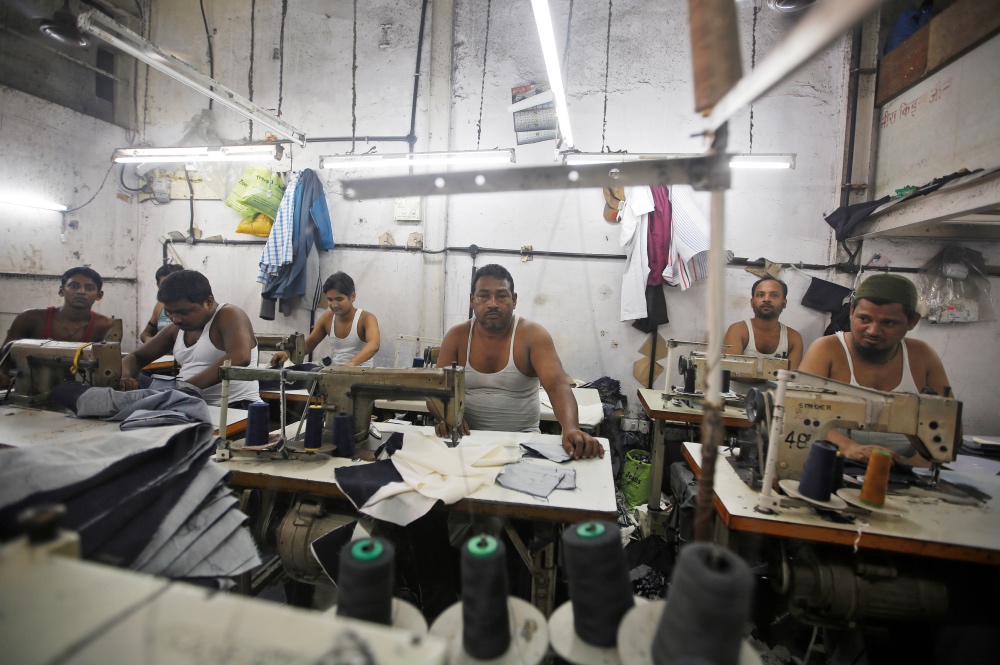Chennai, India
Thomson Reuters Foundation
The coronavirus pandemic has left tens of thousands of Indian garment workers stranded in cramped accommodation on factory premises where social distancing is difficult to put into practice, labour rights campaigners said on Monday.
A three-week nationwide lockdown has left an estimated 300,000 workers in India’s multi-billion dollar garment stuck in factory hostels where rooms are shared by up to a dozen people.

Employees work inside a garment factory at an industrial area in Mumbai, India, on 6th October, 2017. PICTURE: Reuters/Shailesh Andrade/file photo
Most manufacturing units and spinning mills in the southern state of Tamil Nadu are closed – those supplying to hospitals remain open – leaving workers in close proximity and raising concerns that they could unknowingly be spreading the virus.
“Hostel conditions are not ideal at all under the circumstances,” said R Karuppusamy, director of charity Rights Education and Development Centre, which helps garment workers.
“We are very concerned for these young workers as many have been in and out of the factory before the lockdown was announced,” he told the Thomson Reuters Foundation by phone.
India has at least 1,251 cases of the coronavirus and 32 have died. Officials say India is weeks away from a major surge in cases that could overwhelm its weak public health system.
About 40,000 garment factories and spinning mills operate in Tamil Nadu, with many running hostels on their premises to house their staff – most of whom are young women and migrant workers.
Social distancing is key to containing the spread of the virus in the sector, said state health secretary Beela Rajesh.
“All factories have been made aware of this,” Rajesh said.
“Besides, the industries and labour department officials have set up teams to monitor and inspect factories.”
The teams will ensure that factories remain closed, monitor sanitation and hygiene, and check on workers’ health, she added.
Social distancing concerns
The Southern India Mills’ Association- a trade body representing about 500 factories – has also instructed members to ensure all workers on their premises are given due care.
“But there are challenges and social distancing is probably the toughest,” said Selvaraju Kandaswamy, its general secretary.
SIMA is urging its members to pay their workers at least half of their wages while closed. The federal government and Tamil Nadu state have instructed factories to pay salaries during the lockdown, and provide workers with food and shelter.
Temporary factory closures and layoffs have already begun to hit garment workers across Asia – from India and Bangladesh to Cambodia – with top global brands delaying or cancelling orders.
SIMA has asked the government to allow the partial reopening of factories as this would enable shift working and free up space in hostel rooms to facilitate better social distancing.
“We want to start production so that workers are not sitting idle in rooms,” Kandaswamy said. “It will help in social distancing as well since rooms will not be overcrowded.
“We understand the implications of coronavirus and well-being of workers is of utmost importance.”






